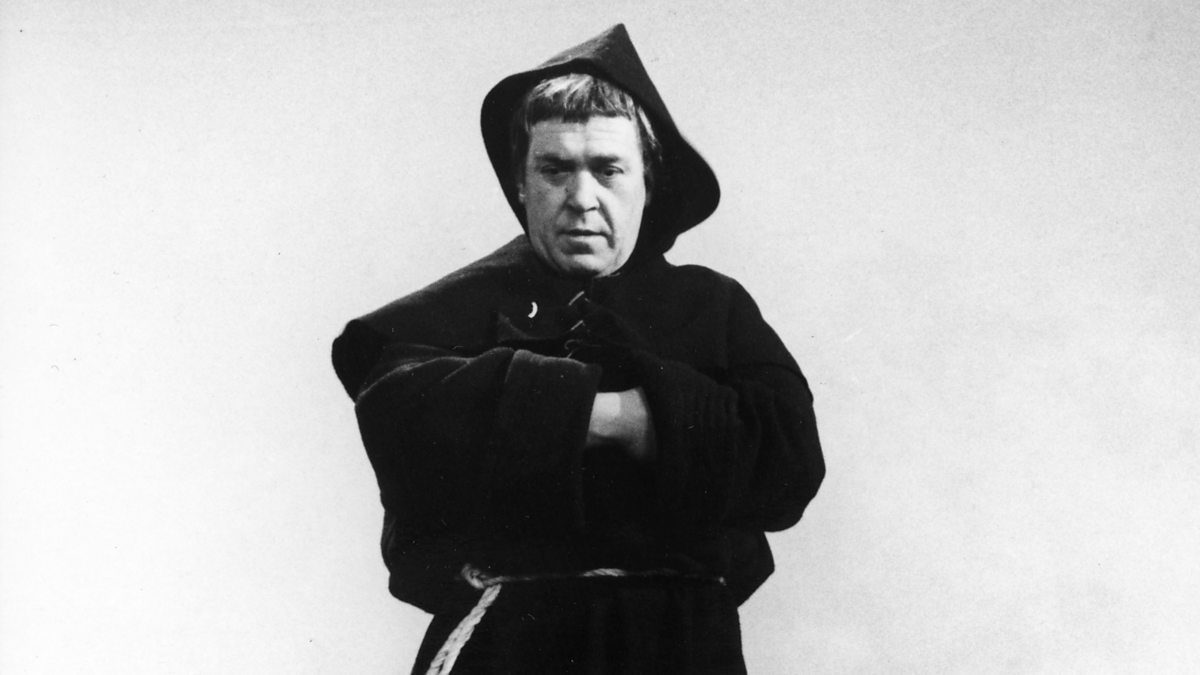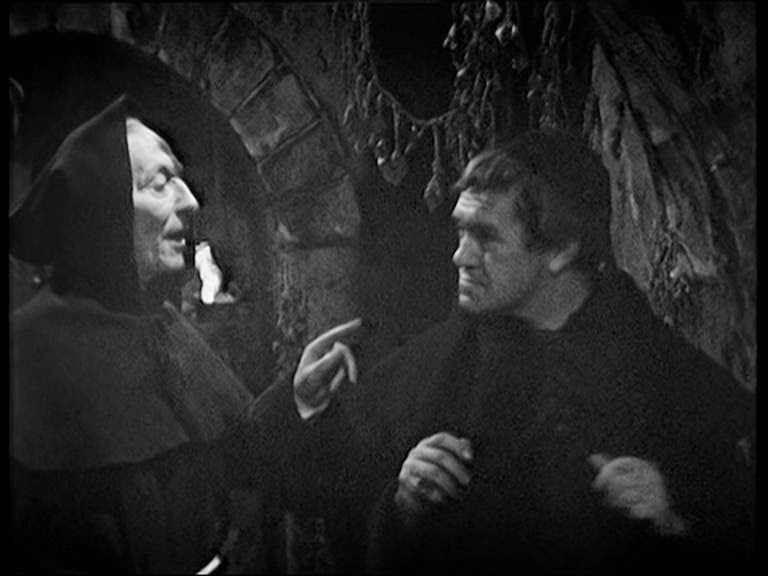DOCTOR WHO, SEASON 2 SERIAL 9:
THE TIME MEDDLER
Doctor: First (William Hartnell)
Companions: Vicki, Steven
April 2023

This is really good.
The Time Meddler is maybe the strongest story in the back half of Season 2. It’s a first in a lot of ways. It’s the first story where a historical story has elements of the futuristic. It’s Steven’s first full story as a companion. And perhaps most notably, it’s the first story where William Hartnell—the Doctor—is the real primary protagonist. It’s no longer the Ian-and-Barbara-and-the-Doctor show: it’s the Doctor’s show. So how does it work out?
Well, pretty well, as it happens!
But first, let’s talk about Steven, because it’s finally his time to shine here. In addition to shaving the beard (tragic) after being introduced at the start of the episode, he solidly settles in to the role of the skeptic. Ian played this role in An Unearthly Child, and Steven does it rather wonderfully here: he fully accepts that the TARDIS is a spaceship, sure, he knows spaceships—but it takes him the better part of three episodes to fully come to terms with the fact that he’s been brought back to England in 1066. This isn’t helped by the plot of the episode being focused on anachronism, which is an intriguing spin. And he’s pretty charming while he does it! He has a fun relationship with Vicki, where they sort of snark at each other but seem to be pals despite it, and that makes me a little sad that we’re only going to get two or three stories with them together. And he also has a fun relationship with the Doctor, partially just because he keeps calling him “Doc” and is forced to add on the “...tor” when the Doctor gets mad. It lends them a nice dynamic (which is good, because we’ll be seeing a lot of them together).
The Doctor is given a lot of solo time here, and it’s worth mentioning just how much the character has shifted since the show’s beginning. He encounters a Saxon village and befriends a woman there—can you imagine it? The Doctor, befriending someone? Easily, too! (He also gets a nice line about wishing Barbara were here.) And not only that, but the sheer fact that his companions are fine with him going off on his own to scout out ahead, and he doesn’t screw them over or anything. I’m really glad that we’ve shifted to a funny little guy of a Doctor (with something of a mean streak), rather than the early episodes’ mean old man of a Doctor (with something of a funny streak). And he’s given a lot of solo time here, too, now as the show’s star: he gets a whole adventure in the first episode, even though he dips out for episode two, and returns in fine form in episode four, where he pretends that he’s holding the Monk at gunpoint when he’s really just holding him at stickpoint. He’s a funny old guy! When he says something mean, Vicki and Steven laugh and roll their eyes! I love it.
This is technically a historical story of a sort—in fact, it’s the first historical story that isn’t quite a “historical.” It’s a historical with some strong science fiction elements, which is the now-familiar setup when Doctor Who goes whizzing down Earth’s past in the modern show. Those elements all come in the form of one character: the Monk; and the elements are such a strong break from tradition at the time that they’re actually the entire purpose of the episode.

The Monk is a very funny antagonist, and I like him rather a lot. He’s a silly little guy with a silly little plan which involves (according to Britbox’s episode description) an “atomic bazooka.” It’s almost cartoonish! But he’s also grounded in a very fun way, and his dynamic with the Doctor is also phenomenal. His whole schtick is being a Time Lord (or “from the same place the Doctor’s from”, since “time lords” hadn’t been invented yet) who goes around and messes up Earth’s history, with the supposed aim of making it “better.”
Obviously, there’s a problem here, because essentially he’s positioned himself as the sole arbiter of what “better” means, and that’s a very dangerous place to put oneself. Not to mention, he has absolutely no idea what might happen when he changes history—the butterfly effect, and all that. But Doctor Who has always had a weird relationship with history, because despite traveling to a lot of places where tragic events happen, they can never outright change it. Doctor Who can never change history, not in major ways, because then history wouldn’t exist and it would cease to be a show that even nominally exists related to our world. It breaks the setup. This is quite evident in the early historicals, where the Doctor repeatedly says things like “You can’t change history, my dear, not one line!” and appears to be madder at the Monk for interrupting “the natural course of history” than for putting himself in the place of arbiter of all that is good and proper. Of course, this leads to a whole argument about why the Time Lords can’t just change everything to be better all the time, since they have time travel, and really the whole thing’s a right mess. But by and large that’s okay, because Doctor Who as a show isn’t about that. It’s about going to the funky new place of the week and getting into trouble. And The Time Meddler excels at that.
here’s not a whole lot else to say here—I like the Vikings’ outfits and funny hair, and that the Saxons are portrayed as both intelligent and rational people who just live in the Middle Ages, even though their village does seem to run off the Smurfette principle. The ending, too, is a very cute touch. It also attempts to show the faces of Steven, Vicki, and the Doctor in the end credits, which maybe technically means that all the original-show Doctors have had their names in the credits? Which is probably only exciting to me, but I like it.
Overall Thoughts:
I really liked The Time Meddler! Steven’s a fun guy, the core concept is compelling and well-executed, the Doctor has fully come into his own, and nothing really drags! I might actually go so far as to rate this one above The Space Museum, I like it so much. Watch it if you want some peak First Doctor, a really rather nicely executed historical pseudo-mystery, or just if you’re looking for a fun little First Doctor adventure!
Overall Season Thoughts:
Season 2 has had its highs and lows—the start of the season was quite strong, it admittedly lulled in the latter middle, but then it came back up again for the end, making this season on the whole quite a good one, I think. In fact, I wouldn’t recommend against watching it through end-to-end, with the probable exceptions of The Web Planet and The Crusade. It’s clear that the show has more or less figured itself, its characters, and its format out at this point, and it shows. Overall, I enjoyed it more than I did Season 1. (It helps that none of the stories are over 6 parts.) And I’m looking forward to Season 3!